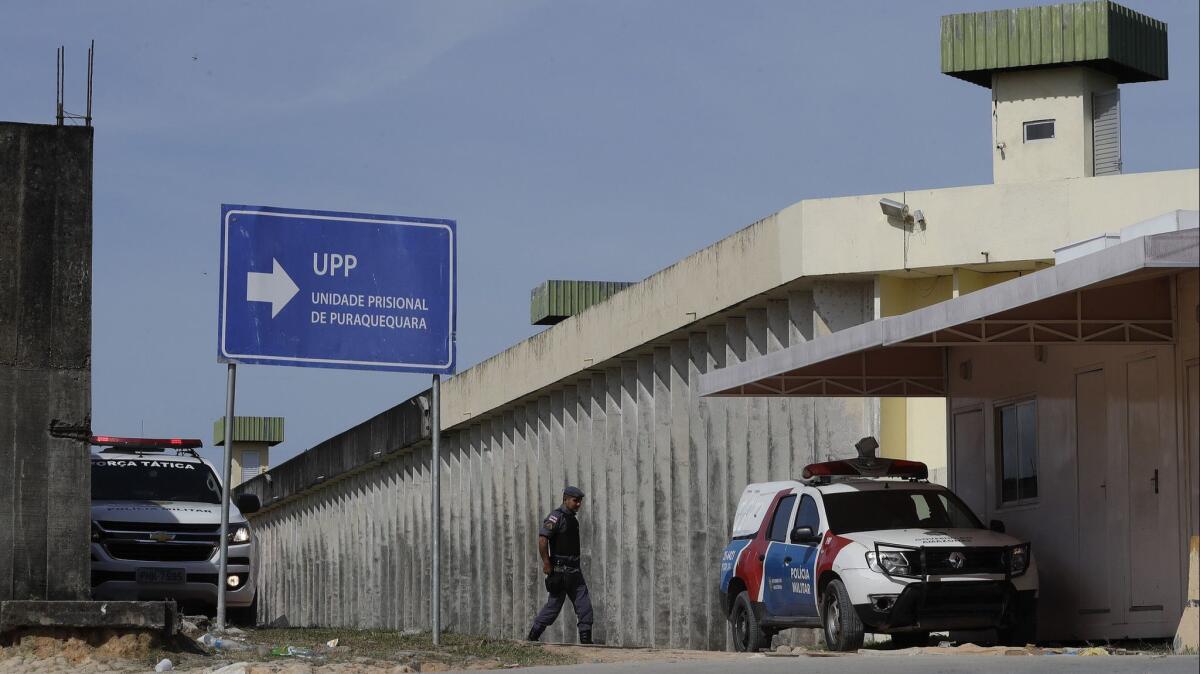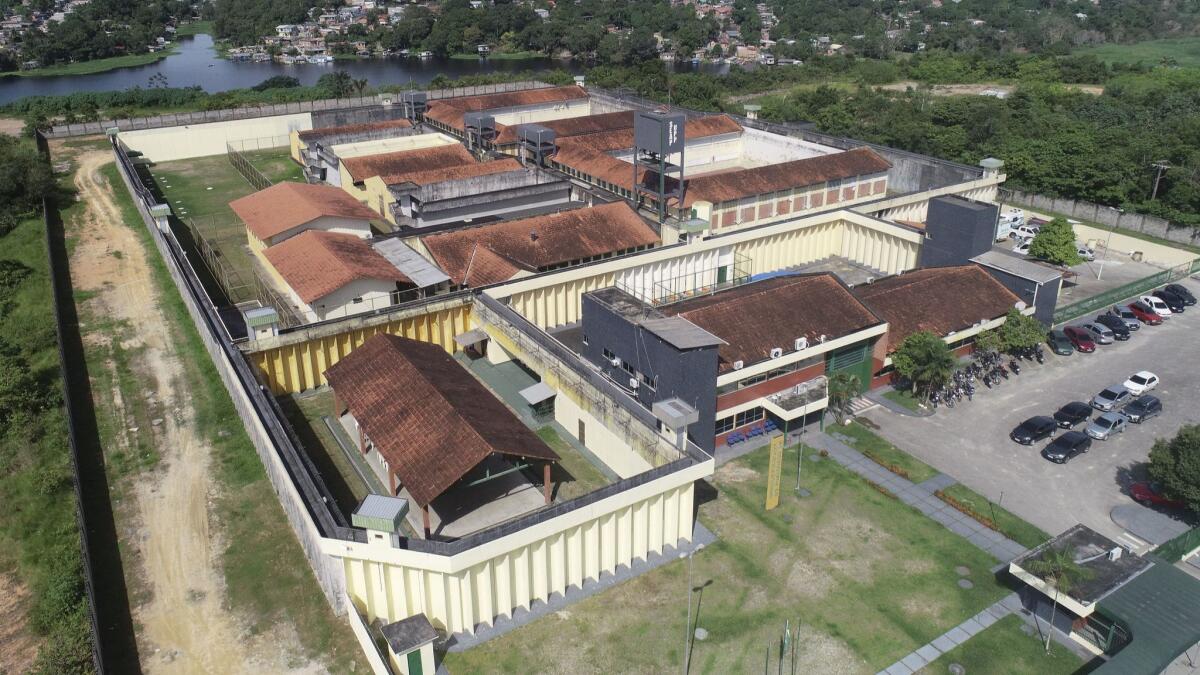Brazil authorities transfer inmates after prison violence kills 55

- Share via
Reporting from MANAUS, Brazil — Brazilian officials said Tuesday that as many as 29 inmates blamed for killing rampages in several prisons would be transferred to stricter federal facilities, after two days of unrest left 55 prisoners dead and authorities rushing to prevent the violence from spreading.
Fighting between inmates began around noon on Sunday in a prison complex in Manaus, the capital of the northern state of Amazonas. The state’s governor, Wilson Lima, said the deaths were the result of infighting in one of the prison’s criminal groups.
“We already had intelligence indicating there was a fissure between members of the same criminal fraction,” Lima said in a news conference, without specifying which group.
Drug trafficking and criminal gangs are able to run much of their day-to-day business from Brazil’s prisons, where they often have wide sway. Authorities frequently try to separate factions and transfer prisoners to prevent clashes.
In the Manaus complex, an emergency security protocol was activated, and within 45 minutes the situation was under control, local authorities said. Still, 15 inmates were killed, either asphyxiated or slain with hand-crafted arms such as sharpened toothbrushes.
The following day, more fights erupted in three other facilities, all in the city of Manaus, leaving 40 more inmates dead and pushing federal authorities to send a special task force to avoid a scenario similar to that of January 2017, when weeks of gruesome prison killings left more 120 victims.

Nine inmates who were transferred to federal facilities Tuesday are believed to have ordered the killings, authorities said. It is unclear when the other 20 prisoners will be transferred to federal facilities. As a precautionary measure, 200 other prisoners have been moved to different cells.
While police forces were intervening to separate inmates considered at-risk, two detainees were shot as they tried to take prison workers hostage.
As the officers advanced, inmates “were killing people, choking them inside their cells,” said Col. Vinicius Almeida, who leads the state prison office.
Family members of inmates gathered outside the prisons, waiting for information on their loved ones. Some outside the Puraquequara Prison Unit, or UPP, told the Associated Press on Tuesday that they heard people screaming and calling for help from within the facility Monday night.
“I’m going to stand here until they give me some news,” said Ediane Costa Soares, 38, whose 19-year-old son, Anderson Soares de Souza, is an inmate at UPP.
Her son does not appear on the list of victims, but Costa Soares wants reassurance of her son’s well-being after the riots. “They have not told us anything.”
Another woman, Ana Claudia Bonfim da Silva, was seeking information about her husband, Marinaldo Chavier, serving a five-year sentence at UPP for robbery.
“It’s not easy because they are treated like animals inside. But they are humans, not dogs. [The authorities] should give them a job, make them work, but there is not anything like that,” she said.
Brazil has the world’s third-largest prison population, with more than 720,000 people behind bars, according to 2016 data from the online database World Prison Brief. Many facilities are severely overcrowded, holding up to three times their capacity, leaving guards vastly outnumbered.
The Anisio Jobim Prison Complex, where 15 inmates died Sunday, was the scene of gruesome infighting two years ago that left 56 prisoners dead. Many of those victims had their heads cut off or their hearts and intestines ripped out.
In a separate episode, 18 prisoners escaped Monday from a prison in the state of Goias. Officials from the prison said Tuesday they had captured six of the fugitives.
Twenty members of the federal task force arrived in Manaus on Tuesday for a period of 90 days, Lima said at a news conference, adding that by the end of the week the number should rise to about 100.
More to Read
Sign up for Essential California
The most important California stories and recommendations in your inbox every morning.
You may occasionally receive promotional content from the Los Angeles Times.










